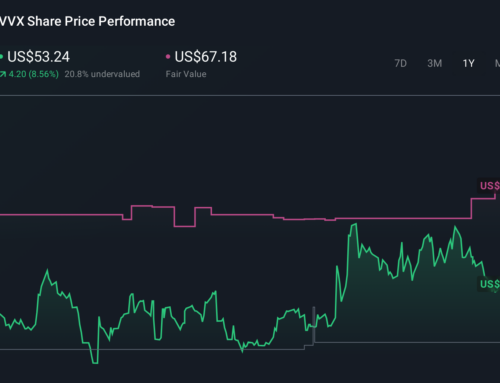As Islip reconsiders cannabis, a vision emerges
March 26, 2025
Islip is two weeks away from deciding whether to allow retail cannabis shops, and most town officials have signaled support for the idea — but what would a dispensary-friendly Islip look like?
The town opted against cannabis dispensaries when New York State legalized the drug in 2021. But earlier this month, the town board voted 4-1 to reconsider that decision on April 8.
Supervisor Angie Carpenter cast the only vote against reviewing the policy. She said the decision to allow dispensaries in Islip would be “irrevocable” and believes it would “jeopardize the … welfare of our youth.”
Other town board members cited reasons ranging from millions of dollars in potential new revenue to increasing consumer safety as their rationale for wanting to revisit the cannabis question.
But uncertainty remains about how much cash Islip stands to gain, and what exactly its final cannabis policy might entail.
“This is a work in progress,” said Councilman John Lorenzo, who’s spearheading the push to allow cannabis dispensaries in Islip. “We’re going to start small and work our way through.”
Newsday spoke with town board members about what residents can expect for the future of retail cannabis in Islip. Here’s what they said.
What are the chances of passage this time?
A majority of Islip’s five-person town board has to vote for dispensaries to change Islip’s policy. Lorenzo and Councilman Jorge Guadron said they are both sold on dispensary legalization, while Councilman Michael McElwee called himself a “likely yes.”
Councilman James O’Connor hasn’t said how he’s leaning but told Newsday most of the “moral and public health” arguments against dispensaries have weakened since nearby towns started legalizing the industry.

Carpenter, the supervisor, is the only firm “no.” Despite being Islip’s top official, she doesn’t have veto power and her vote doesn’t carry extra weight on the dais.
Potential revenue is ‘the unknown’
Islip officials agree that there’s money to be made by opting in to the cannabis industry — state law allows towns to keep 3% of the tax revenue generated by dispensaries within their borders.
But exactly how much tax money Islip can expect remains to be seen, according to Lorenzo, who said there aren’t any Islip-specific revenue projections.
“No one knows. It’s the unknown right now,” he said, explaining that he’s using Babylon’s revenue as the gauge Islip’s expectations.
Newsday has reported Babylon’s dispensary revenue generated about $2.6 million for the town in 2024 alone, according to data from Suffolk County.
Former Greater Bay Shore Chamber of Commerce President Donna Perricone said the money isn’t worth it. She perceives dispensary legalization as a public health risk for young people.
“[Supporters argue] you can’t turn away millions of dollars, but … not every revenue is good for the residents of Islip,” she said.
Market dilution adds to that uncertainty
Growth in Long Island’s cannabis market adds to that revenue uncertainty. Brookhaven, Babylon, Riverhead and Southampton have all legalized dispensaries, and more cannabis shops are expected to open in those areas over the next few years.
As more industry players enter the market, each municipality is expected to get a smaller piece of the tax revenue pie, according to Babylon Supervisor Rich Schaffer.
“We were the only game in town … that’s why we’re benefiting [so much financially] from it,” Schaffer told Newsday. “I think that will stabilize at some point once other towns start opening.”
McElwee said there would still be “significant revenue” for the town but agreed “the revenue will get diluted as more communities [allow dispensaries].”
More enforcement eyed by officials
Guadron said the opportunity to have cannabis products regulated is “the foremost of the reasons why we should opt in.”
“When consumers purchase something from an illegal source, they don’t know what they’re getting. … That poses a risk that may threaten their lives,” he said.
McElwee said he would like to see an expansion of Islip’s code enforcement efforts targeting smoke shops that could be selling cannabis illegally. He envisions that enforcement coinciding with legalization, but he doesn’t yet have a solid plan for how that would work.
He mentioned two ideas: The first would create regular town inspections specific to smoke shops, like health code checks at restaurants. The second would be a less-formal uptick in scrutiny of smoke shop compliance, with things like fire codes, to help ensure bad actors are “enforced out of business.”

Dispensary sites, operations would be limited
Islip’s retail cannabis policy will have “very restrictive” guidelines if approved, multiple town officials told Newsday.
Lorenzo said on-site cannabis consumption is a nonstarter, for example. He told Newsday, “these stores are not going to be allowed to have a lounge in them. … It’s not a bar.”
Guadron floated the idea of limiting the number of dispensaries to five. He doesn’t believe any more “would be healthy,” but wants to form a town “cannabis retail industry advisory board” to help guide those policy details.
And Lorenzo said dispensaries would be located only in “industrial areas,” like along Veterans Memorial Highway, similar to how Babylon handled its dispensary zoning.
That still isn’t enough to convince opponents like Perricone, however. She told Newsday, “I have three grandsons … I don’t want them having this somewhere, whether it’s in the industrial area or not — it’s wrong.”
O’Connor is sympathetic to that argument but said Islip’s decision about retail cannabis may do little to impact the level of availability Perricone mentioned, given how dispensaries have proliferated around Islip since 2021.
“There are people there who will advocate that this is a bad idea for moral and public health reasons. Part of that, I understand. I know that’s going to be part of the discussion, but to a certain extent that horse is already out of the barn,” O’Connor said.
Search
RECENT PRESS RELEASES
Related Post





